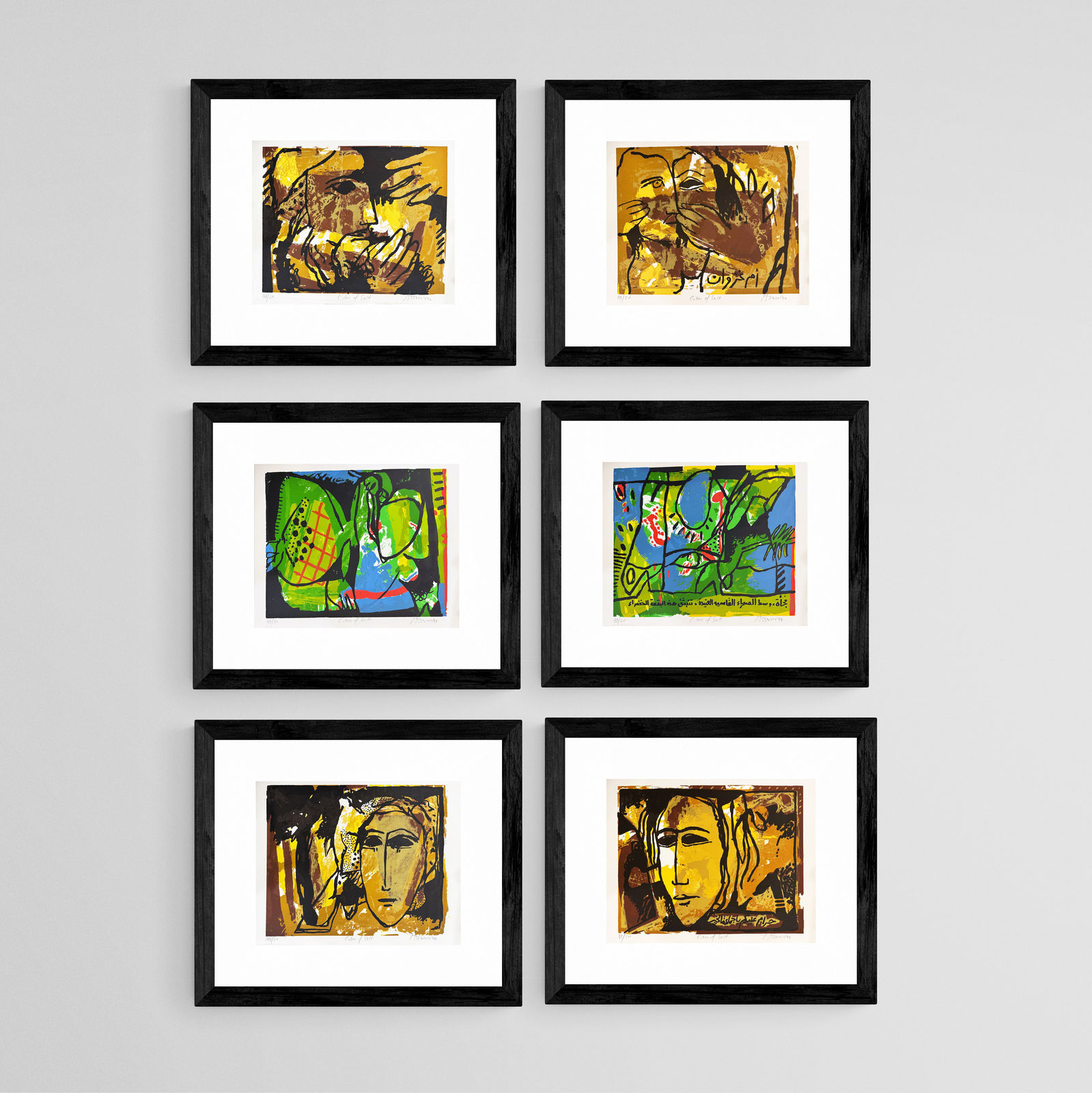Dia Azzawi IRAQI, b. 1939
Cities of Salt (Mudun al-Milh) , 1994
Silkscreens
15 3/4 x 19 3/4 in
40 x 50 cm
40 x 50 cm
Copyright The Artist
Cities of Salt (Mudun al-Milh) is a novel by the Saudi novelist Abdul Rahman Munif (1933–2004), with paintings by Dia al-Azzawi. It is the most famous novel of Abdul Rahman...
Cities of Salt (Mudun al-Milh) is a novel by the Saudi novelist Abdul Rahman Munif (1933–2004), with paintings by Dia al-Azzawi. It is the most famous novel of Abdul Rahman Munif, and it tells the story of the effects of the
discovery of oil in an idyllic oasis in an unnamed country.
The
following is from the beginning of the book:
Miteb al-Hathal sensed that something terrible was about to happen. He
did not know what it was or when it would happen…The very sight of the
foreigners and their constant activity all day, the instruments they
carried around…At dawn, he got up slowly, inhaling the wadi's air into
his lungs and whole body. He looked all around him as if in farewell. He
saw a flock of sand grouse glide by. He looked at the men in the camp,
filled with a strong sense of finality, and when the mad machines went
into action, he screamed in a harsh, pained voice: "I'm sorry, Wadi
al-Uyoun, I'm sorry!"
The edition is limited to 50 copies, each signed and numbered by the artist. It is enclosed in a folded sheet.
discovery of oil in an idyllic oasis in an unnamed country.
The
following is from the beginning of the book:
Miteb al-Hathal sensed that something terrible was about to happen. He
did not know what it was or when it would happen…The very sight of the
foreigners and their constant activity all day, the instruments they
carried around…At dawn, he got up slowly, inhaling the wadi's air into
his lungs and whole body. He looked all around him as if in farewell. He
saw a flock of sand grouse glide by. He looked at the men in the camp,
filled with a strong sense of finality, and when the mad machines went
into action, he screamed in a harsh, pained voice: "I'm sorry, Wadi
al-Uyoun, I'm sorry!"
The edition is limited to 50 copies, each signed and numbered by the artist. It is enclosed in a folded sheet.
4
of
4
